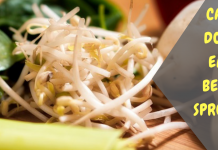Welcoming a new puppy into your home is an exciting adventure filled with wagging tails, playful antics, and boundless energy. As you embark on this journey, one of the most crucial decisions you’ll make is choosing the right food to support your puppy’s growth and development. Just like a sturdy foundation is essential for a building, strong bones and joints are vital for your puppy’s health and vitality. In this article, we’ll guide you through selecting the best puppy food to nurture your furry friend’s skeletal system, ensuring they grow into a robust and energetic adult dog. With warmth and care, we’ll explore the essential nutrients, ingredients, and feeding tips that will help your puppy thrive, providing them with the strength and agility to explore the world by your side.
Understanding the Nutritional Needs of Growing Puppies
When it comes to nourishing your puppy for optimal bone and joint health, understanding their unique nutritional requirements is essential. Puppies grow rapidly, and during this crucial period, their bodies demand a balanced intake of nutrients to support robust skeletal development. Calcium and phosphorus are vital minerals that should be present in the right proportions to aid in the formation of strong bones and prevent skeletal disorders. Equally important are proteins, which provide the essential amino acids necessary for muscle growth and repair, supporting your puppy’s active lifestyle.
Incorporating the right mix of nutrients involves choosing foods that are specifically formulated for young dogs. Here are some key components to look for in high-quality puppy food:
- Omega-3 fatty acids: Known for their anti-inflammatory properties, they help maintain healthy joints.
- Glucosamine and chondroitin: These compounds support joint health and may help prevent future issues.
- Vitamins D and E: Essential for bone health and overall immune function.
- Quality protein sources: Ensure they are from reputable animal-based origins, such as chicken or fish.
By focusing on these nutritional elements, you can help ensure your puppy grows into a strong, energetic adult with the solid foundation of healthy bones and joints.
Key Ingredients for Bone and Joint Health in Puppy Food
Ensuring your puppy receives the right nutrients during their formative months is crucial for developing strong bones and joints. Look for foods that are rich in calcium and phosphorus, as these minerals are essential for building a solid skeletal structure. Vitamin D is another key component, facilitating the absorption of calcium and supporting bone growth. Additionally, omega-3 fatty acids, such as DHA, play a vital role in reducing inflammation and promoting joint health, making them indispensable in your puppy’s diet.
- Glucosamine and Chondroitin: These compounds support joint health by aiding in the repair of cartilage and maintaining joint flexibility.
- High-Quality Protein: Proteins from sources like chicken, lamb, or fish provide essential amino acids that help in muscle development, which in turn supports joint health.
- Antioxidants: Ingredients like blueberries and spinach offer antioxidants that help reduce inflammation and protect growing bones and joints.

Top Puppy Food Brands for Strong Bones and Joints
Choosing the right food for your growing puppy is crucial for ensuring their bones and joints develop healthily. Several brands have formulated special recipes to support these needs. Here are some top picks:
- Royal Canin Puppy Large Breed: This brand offers a formula specifically designed for large breed puppies, rich in calcium and phosphorus to promote strong bone development.
- Hill’s Science Diet Puppy Large Breed: Known for its high-quality ingredients, this food is enriched with glucosamine and chondroitin, essential for joint health.
- Blue Buffalo Life Protection Formula Puppy: Featuring real meat as the first ingredient, this brand includes DHA and ARA for healthy bone growth and cognitive development.
Each of these brands has crafted their formulas with the precise balance of nutrients needed to help your puppy thrive. Always consult with your veterinarian to ensure the best choice for your furry friend’s specific breed and size requirements.

Tips for Transitioning Your Puppy to a New Diet
Transitioning your puppy to a new diet can be a smooth process with a little patience and the right approach. Start by gradually introducing the new food over a period of 7-10 days. Begin by mixing a small amount of the new food with your puppy’s current diet, slowly increasing the new food while decreasing the old one. This gradual change helps your puppy’s digestive system adjust and reduces the risk of upset stomachs.
- Observe closely: Monitor your puppy for any signs of digestive distress or allergies, such as diarrhea or skin irritations.
- Stay consistent: Ensure regular feeding times to help your puppy adapt to the new routine.
- Hydration is key: Make sure your puppy has constant access to fresh water, especially when introducing dry food.
- Consult your vet: Before making any major dietary changes, it’s always a good idea to get professional advice tailored to your puppy’s specific needs.
In Conclusion
choosing the best puppy food for strong bones and joints is an essential step in nurturing your furry friend’s growth and overall health. By prioritizing high-quality ingredients rich in calcium, phosphorus, and omega fatty acids, you’re setting the foundation for a vibrant and active life for your puppy. Remember, every pup is unique, so consider consulting your veterinarian to tailor the perfect diet plan that suits your puppy’s specific needs. As you embark on this journey of pet parenthood, relish the joy and warmth your puppy brings, knowing that you’re supporting their development with the best nutrition possible. Here’s to many happy, healthy years with your new best friend!















